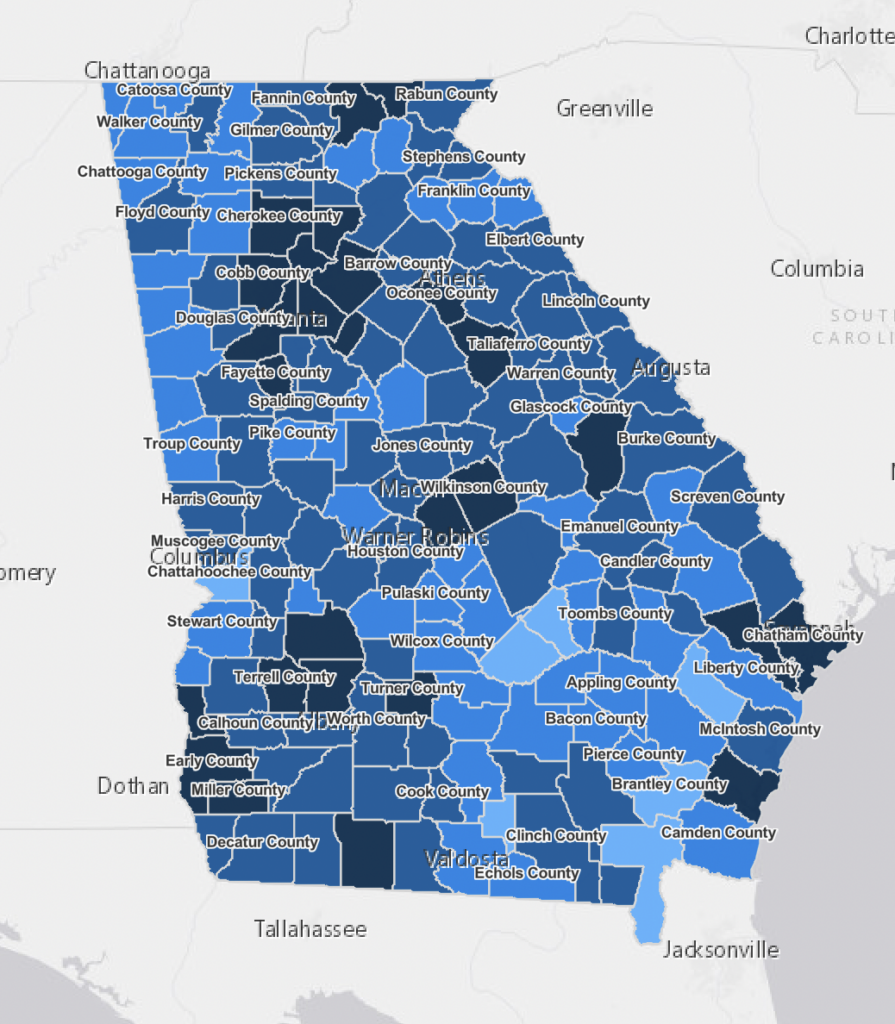Statistics/Tracking
When this website was created, it heavily relied on the COVID Tracking Project for data. The COVID Tracking Project was a volunteer-based effort to aggregate and publish Covid-19 data neatly, since each state had their own system of reporting cases early on in the pandemic. It is not updated anymore, but many more resources for statistics/data have emerged. Some great ones are mentioned below.
(NYT: New York Times, MC: Mayo Clinic, JHU: Johns Hopkins University.) All 3 of these resources are interactive, letting you change the state/region to see refined or specific case trends.
Georgia residents
Mayo Clinic also has a COVID-19 Vaccine Tracker that lets people see how their state is coming along with vaccinations. So far, Georgia is 44% fully vaccinated (as of 9-21-21).
Unable to leave home?
At Home Vaccinations – (from the GA DPH)
If you want a vaccine but cannot leave your home, vaccination can come to you.
Please email [email protected] or call (888) 572-0112 with the following information for the person who requires at-home vaccination:
Name
DOB
Address
City
County
Contact Phone Number
Boosters (3rd shot) for some people who got Pfizer
Officially, it is recommended that people 65+ and people with underlying medical conditions get a third shot of the Pfizer vaccine if it has been 6 months since their first two shots.
Unofficially, the same has been recommended for workers on the front line. This has caused some confusion, even among the experts. The best thing to do if you are unsure is call your doctor and ask them if you need a third shot. See the CDC’s page on this topic.
Immunocompromised examples:
- Been receiving active cancer treatment for tumors or cancers of the blood
- Received an organ transplant and are taking medicine to suppress the immune system
- Received a stem cell transplant within the last two years or are taking medicine to suppress the immune system
- Moderate or severe primary immunodeficiency (such as DiGeorge syndrome, Wiskott-Aldrich syndrome)
- Advanced or untreated HIV infection
- Active treatment with high-dose corticosteroids or other drugs that may suppress your immune response
Front line worker examples:
- First responders (healthcare workers, firefighters, police, congregate care staff)
- Education staff (teachers, support staff, daycare workers)
- Food and agriculture workers
- Manufacturing workers
- Corrections workers
- U.S. Postal Service workers
- Public transit workers
- Grocery store workers
updated 9/25/21
© Copyright 2021. All Rights Reserved. ScoreMatrix • Designed by Nash
